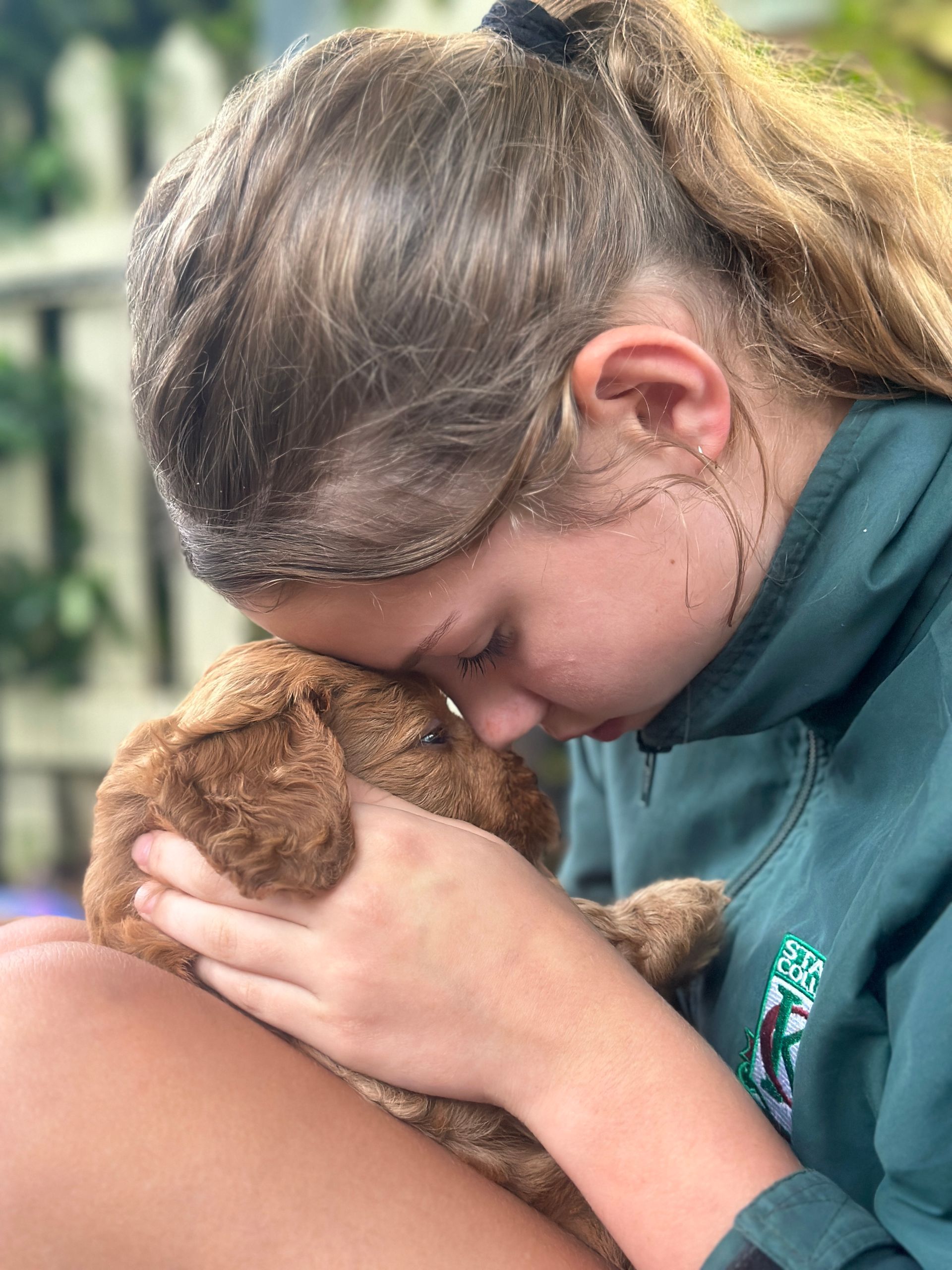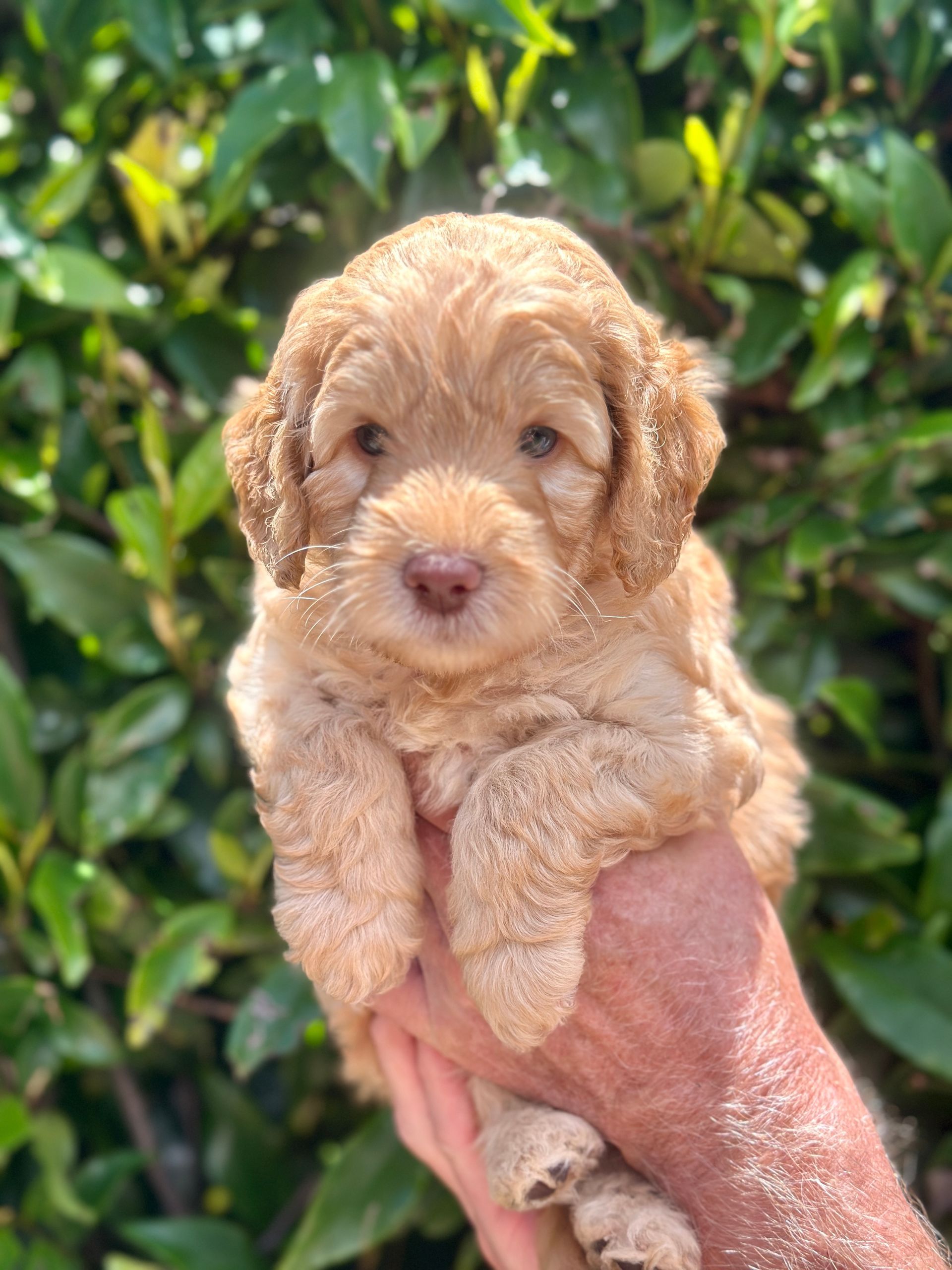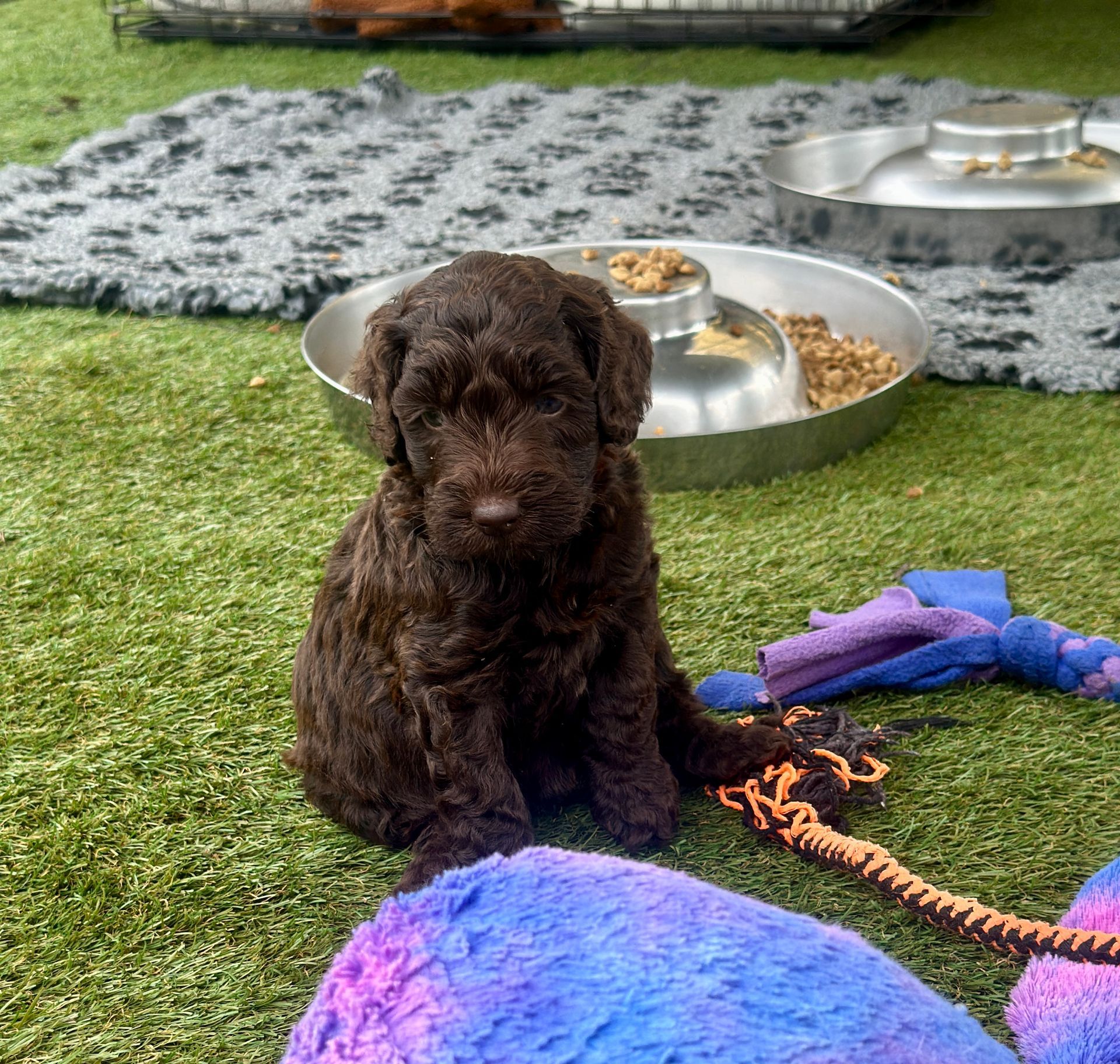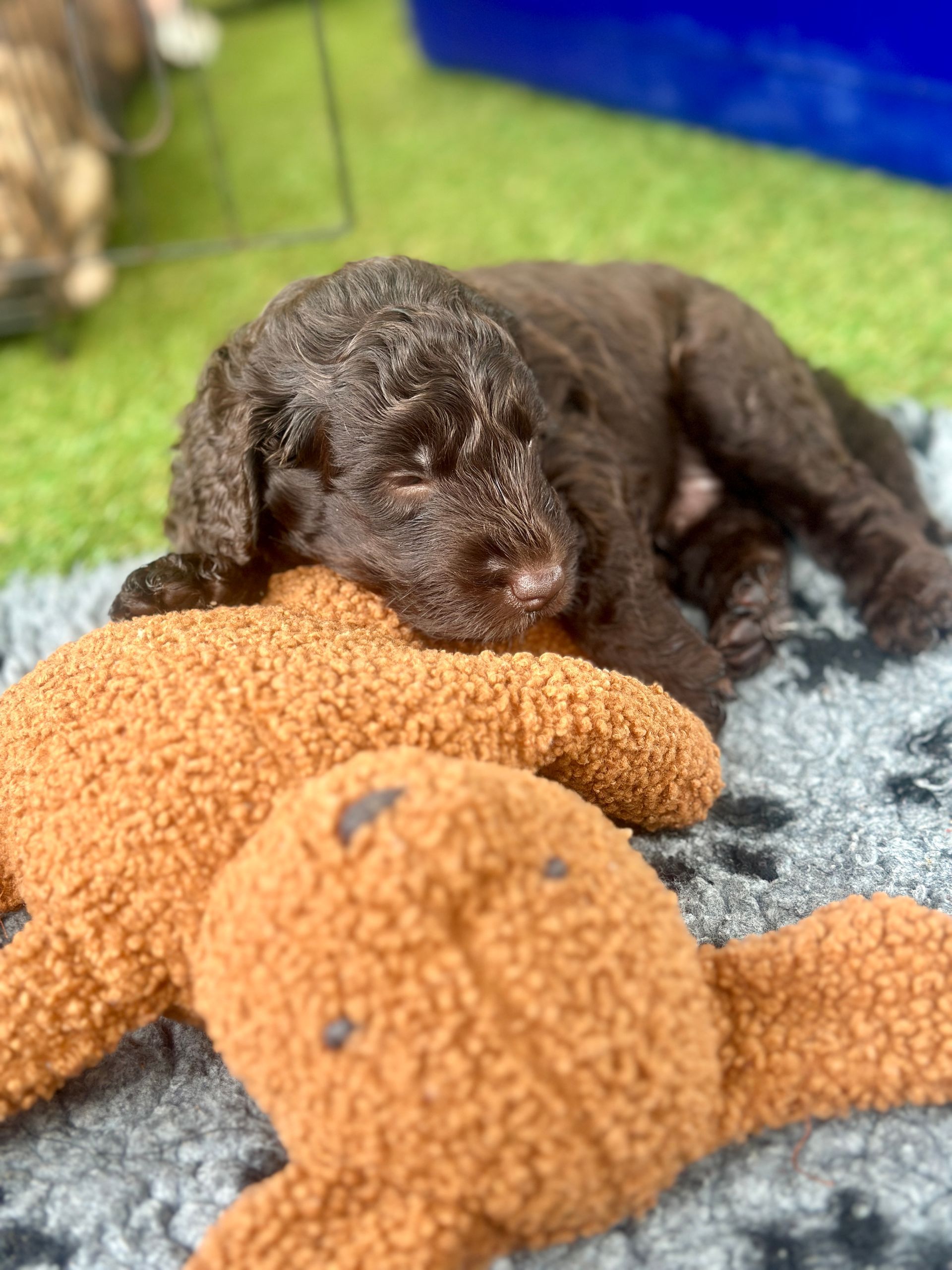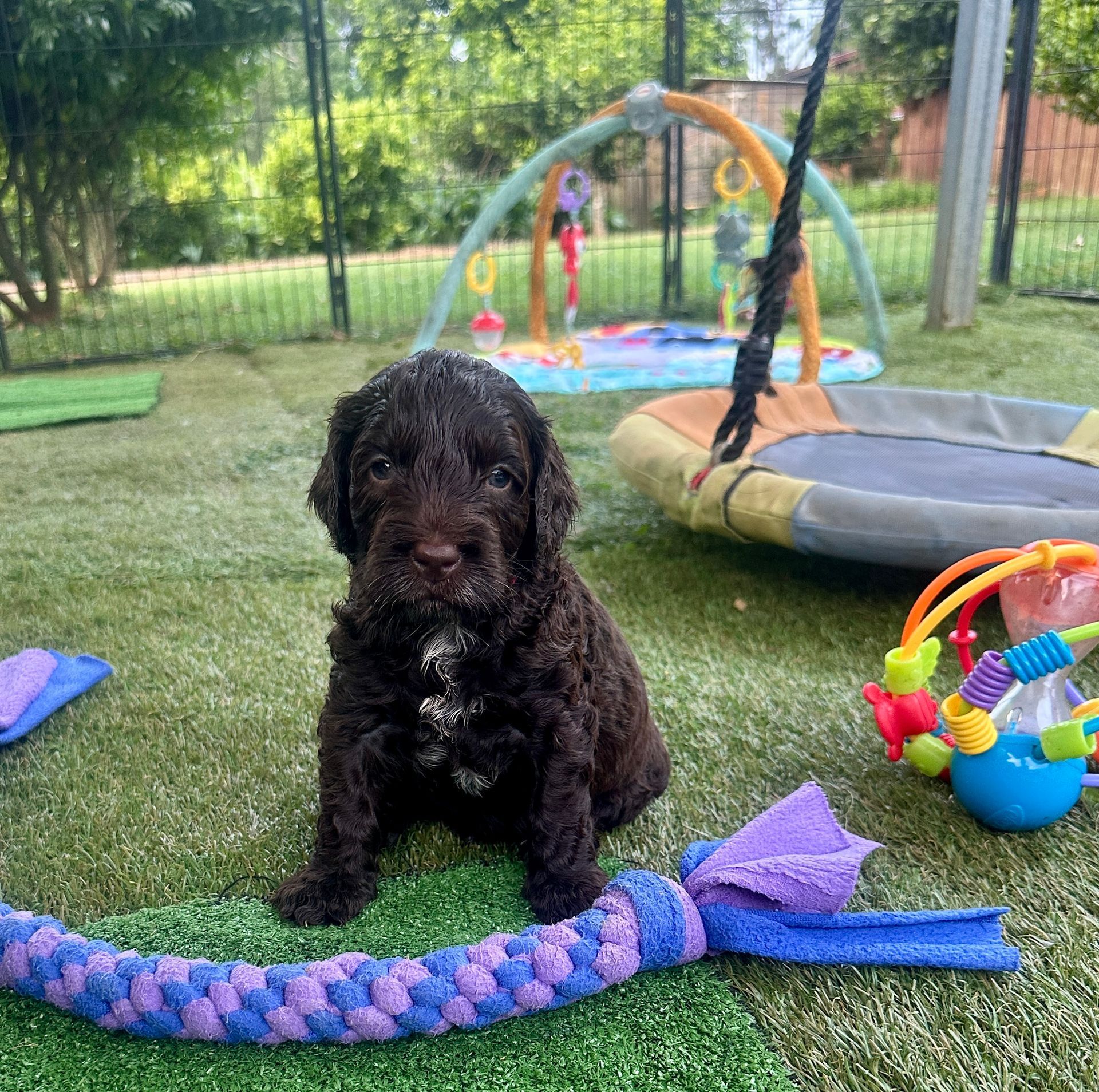Labradoodle
News & Stories
Puppies raised in a loving environment will live better lives
Why early intervention is crucial
Why do I emphasise raising puppies in a safe, loving, and trauma-free environment, especially during their first eight weeks? Because how puppies are nurtured in this critical stage shapes their ability to learn, adapt, and thrive for the rest of their lives. My program not only focuses on physical health but also prioritises emotional and cognitive development, which lays a strong foundation for advanced training, including specialised work as assistance or service dogs.
A Safe Environment Opens Neural Pathways for Learning
Puppies raised in a secure, enriched environment are more receptive to learning because they are free from the constant stress and fear that inhibit brain development. Fearful or traumatised puppies often experience a heightened fight-or-flight response, which shuts down the brain’s capacity to absorb new information. By creating a calm, positive setting, I ensure that my puppies’ brains remain open to learning, forming strong neural pathways that promote curiosity, problem-solving, and adaptability.
In my program, I intentionally expose puppies to mild, controlled stressors—always within a framework of safety—to help them develop resilience. Early Neurological Stimulation (ENS) is combined with structured enrichment activities, teaching them that they can face new situations without fear. This builds confidence and enhances cognitive flexibility, which directly translates to a puppy’s ability to master more complex training later in life.
Exposure and Problem-Solving Build Cognitive Strength
My puppies engage in carefully designed exercises that challenge their problem-solving abilities. These activities—like navigating new environments, solving puzzles, and responding to gentle cues—strengthen the neural pathways involved in learning. They quickly learn to associate human interaction with positive outcomes, making them eager to engage and learn from people.
By introducing puppies to a wide range of sounds, textures, and experiences, I desensitize them to potential stressors. This reduces fear-based reactions and encourages calm, thoughtful responses. Puppies raised in this way are better equipped to process commands, adapt to changing environments, and remain focused in the face of distractions—key qualities for assistance dogs who must perform tasks reliably in dynamic situations.
Socialisation Enhances Communication Skills
Puppies in my program are exposed to diverse people and animals. This varied socialisation helps them develop a strong understanding of human body language and communication cues. Assistance dogs need to be finely attuned to human emotions and non-verbal signals, a skill that begins with positive, trust-based interactions in puppyhood. Because my puppies are raised to feel secure and confident around people, they find human interaction rewarding, making training easier and more effective.
Emotional Resilience for Assistance Work
Assistance and therapy dogs face unique demands that require exceptional emotional stability. They must remain calm in public spaces, navigate complex environments, and respond to their handler’s needs without hesitation. Puppies raised in trauma-free, emotionally nurturing environments are far better suited to handle these responsibilities. My breeding dogs live in guardian homes where they experience unconditional love and a high quality of life, ensuring that their puppies inherit a genetic legacy of emotional security and trust.
Results: Eager Learners, Ready for Specialized Training
The combination of safety, enrichment, and socialisation in my program produces puppies who are naturally eager to learn. Because they associate new experiences with positive outcomes, they approach training with enthusiasm and curiosity rather than fear. This makes them ideal candidates for assistance work, where problem-solving, adaptability, and a deep bond with humans are essential. By the time these puppies move on to specialised training, they are already primed to succeed.
In summary, my approach ensures that puppies grow up emotionally secure, mentally resilient, and cognitively prepared. This not only benefits families looking for a loving companion but also provides an exceptional foundation for dogs destined for assistance work. A safe beginning creates confident learners—and confident learners become capable, reliable partners.


